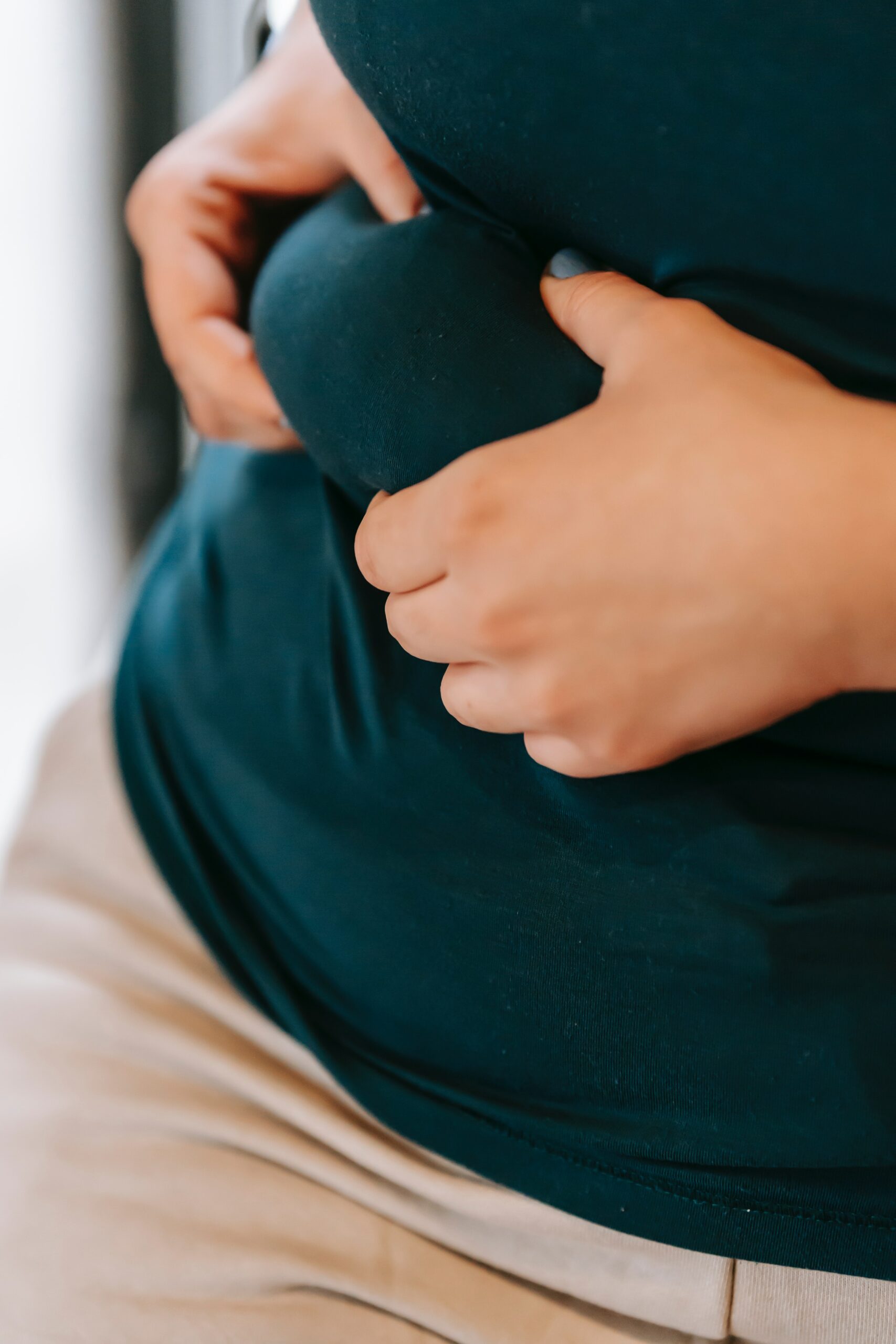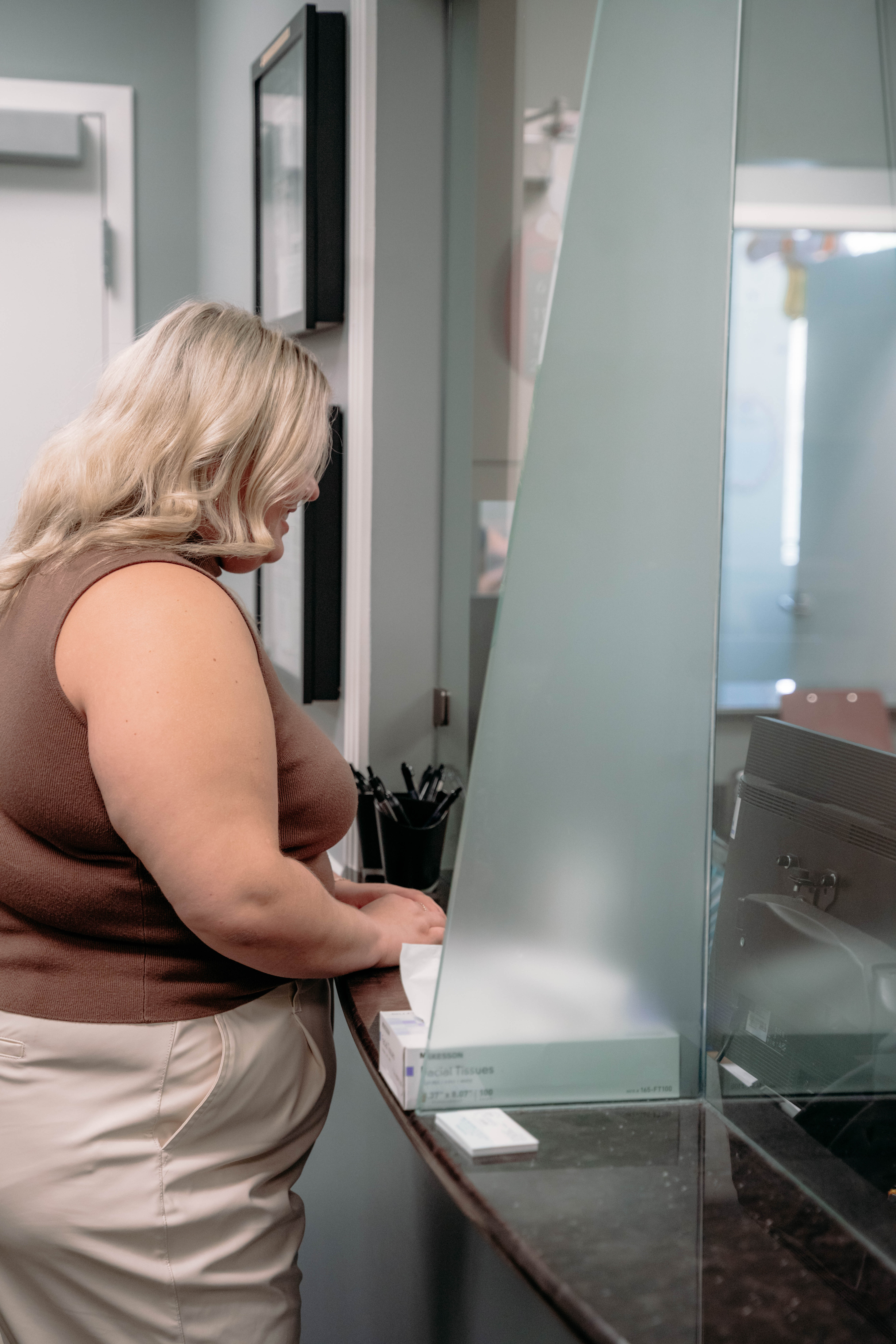Weight gain can be very common for women as they age. If you recently experienced sudden weight gain you may find the following information to be helpful. There probably isn’t just one reason why you have gained weight. There could be multiple reasons why this happened.
Reasons Why You May Gain Weight:
- Hormonal changes: As women age, their hormone levels naturally decrease, which can lead to an increase in body fat and a decrease in muscle mass.
- Decreased physical activity: If you have become less active with age, this can lead to a decrease in muscle mass and an increase in body fat.
- Slower metabolism: Metabolism tends to slow down as we age, which can make it harder to maintain a healthy weight.
- Changes in diet: Has there been a change in your diet? Such as a decrease in nutrient-dense foods and an increase in processed foods?
- Stress: Chronic stress can cause the body to produce higher levels of cortisol, a hormone that can increase appetite and promote fat storage.
- Medications: Certain medications, such as those used to treat depression or menopause symptoms, can cause weight gain as a side effect.
If you believe the changes in your weight are due to hormonal changes, you can consult your healthcare provider to see if ordering a blood test to check your hormone levels is an option. Weight gain is not exactly inevitable with menopause – you can change the course by paying closer to your diet and physical activity levels.
Tips To Prevent Weight Gain After Menopause
- Amp up the physical activity, including aerobic exercise and strength training. Doing so will help you shed excess pounds and maintain a healthy weight. As you gain muscle, your body burns calories more efficiently. Before you add any new exercises to your routine make sure you check with your healthcare provider. Experts recommend (for healthy adults) moderate aerobic activity, such as brisk walking, for at least 150 minutes a week or vigorous aerobic activity, such as jogging, for at least 75 minutes a week. In addition, strength training exercises are recommended at least twice a week. If you want to lose weight or meet specific fitness goals, you might need to exercise more.
- To maintain your current weight you need about 200 fewer calories a day during your 50s than you did during your 30s and 40s. To reduce calories without skimping on nutrition, pay attention to what you’re eating and drinking. Select more fruits, vegetables, and whole grains, particularly those that are less processed and contain more fiber.
- In general, a plant-based diet is healthier than other options. Legumes, nuts, soy, fish, and low-fat dairy products are good choices. Meat, such as red meat, or chicken, should be eaten in limited quantities. Replace butter, stick margarine, and shortening with oils, such as olive or vegetable oil.
- Try to avoid added sugars. Added sugars can account for nearly 300 additional calories a day. About half of these calories come from sugar-sweetened beverages, such as soft drinks, juices, energy drinks, flavored waters, and sweetened coffee and tea.
- Limit your alcohol consumption. Alcoholic beverages add excess calories to your diet and increase the risk of gaining weight.
- Share your goals. Let your supportive friends and family know what your health goals are. Or team up with others that have similar lifestyles or health goals that you do.
Overall, maintaining a healthy lifestyle can improve physical and mental health, increase energy levels, and promote overall well-being. It’s important to remember that small changes can make a big difference and that adopting healthy habits can lead to a happier and healthier life.
Here at GYN Women’s Centre of Lakewood Ranch we are committed to the health and well-being of our patients. If you have questions or concerns about this topic we will be happy to help! Schedule your appointment today.




